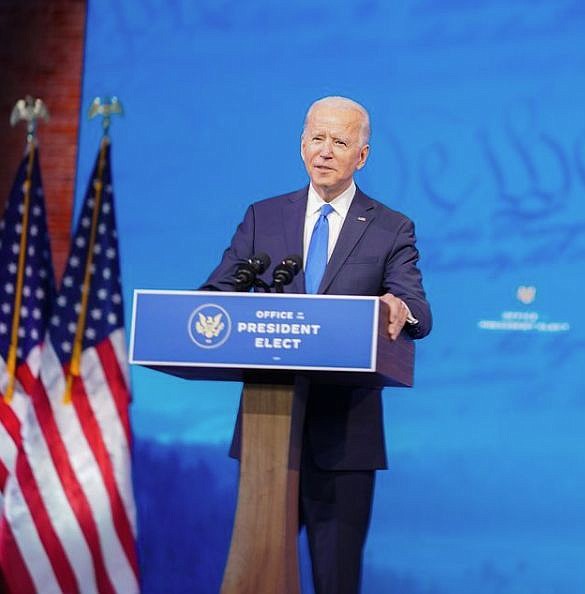Biden Proposes New COVID-19 Lifelines
Finance
The American Rescue Plan includes $15 billion in grants to small businesses as well as another $35 billion in financing programs. | Photo courtesy of instagram.com/joebiden
As of Thursday, January 21, 2021
Before becoming the 46th United States president, Joe Biden unveiled the American Rescue Plan on Jan. 14, a proposed $1.9-trillion program that his incoming administration said will put the U.S. economy back on its feet after 10 months of the COVID-19 pandemic. The plan was announced shortly after the U.S. Congress approved a second round of Payment Protection Plan loans, which will provide further aid to small businesses navigating the pandemic’s economic slowdown.
The American Rescue Plan proposes increasing unemployment insurance, giving stimulus payments of $1,400 to qualifying individuals, and offering aid to state and local governments, schools, renters, child-care providers, as well as a speed-up for COVID-19 vaccination programs.
The American Rescue Plan’s proposal also features $15 billion in grants for small businesses.
Additional small-business lifelines would come from another program in which $35 billion in government funds would be invested into financing programs that would be administered by state, local, tribal and nonprofit groups.
The proposal was met with praise from business groups. Matthew Shay, president and chief executive officer of the National Retail Federation trade group, said that the American Rescue Plan demonstrated that the incoming administration is sincere about tackling the challenges brought on by the pandemic.
“The stimulus plan is expansive in scope, and it serves as an encouraging signal that the new administration intends swift action to support businesses and consumers. Jobs have been lost, businesses have been closed, and our economy has struggled. We support providing critical government assistance in the form of direct payments to families and individuals whose lives have been disrupted, further aid for small businesses across the country, and tools to keep businesses open and the economy growing,” Shay said.
The U.S. Chamber of Commerce applauded the “focus on vaccinations and on economic sectors and families that continue to suffer as the pandemic rages on. We must defeat COVID before we can restore our economy, and that requires turbo-charging our vaccination efforts.”
A new round of PPP will be a crucial lifeline to many businesses, said Ron Friedman, head of retail and consumer products for the Marcum LLP accounting and advisory firm and a partner in its Los Angeles office.
“What helps businesses the most has been PPP money. It has been so helpful for clients who have been substantially hurt,” Friedman said.
For those companies that received the first round of PPP funds and were looking to apply for another round, Friedman recommended working with the same banks and financial institutions that helped with the first round. These banks will be able to use the paperwork from the first round for new funds. Friedman also was helping businesses apply for Employee Retention Tax Credits. These refundable tax credits are equivalent to 50 percent of an employee’s wage. The credits range up to a $5,000 credit for the 2020 fiscal year to $7,000 per quarter during the 2021 fiscal year. The $7,000 quarterly credit will expire on June 30. Friedman also recommended checking the website for the Small Business Administration at sba.gov to look for updates and new guidance for PPP programs.
